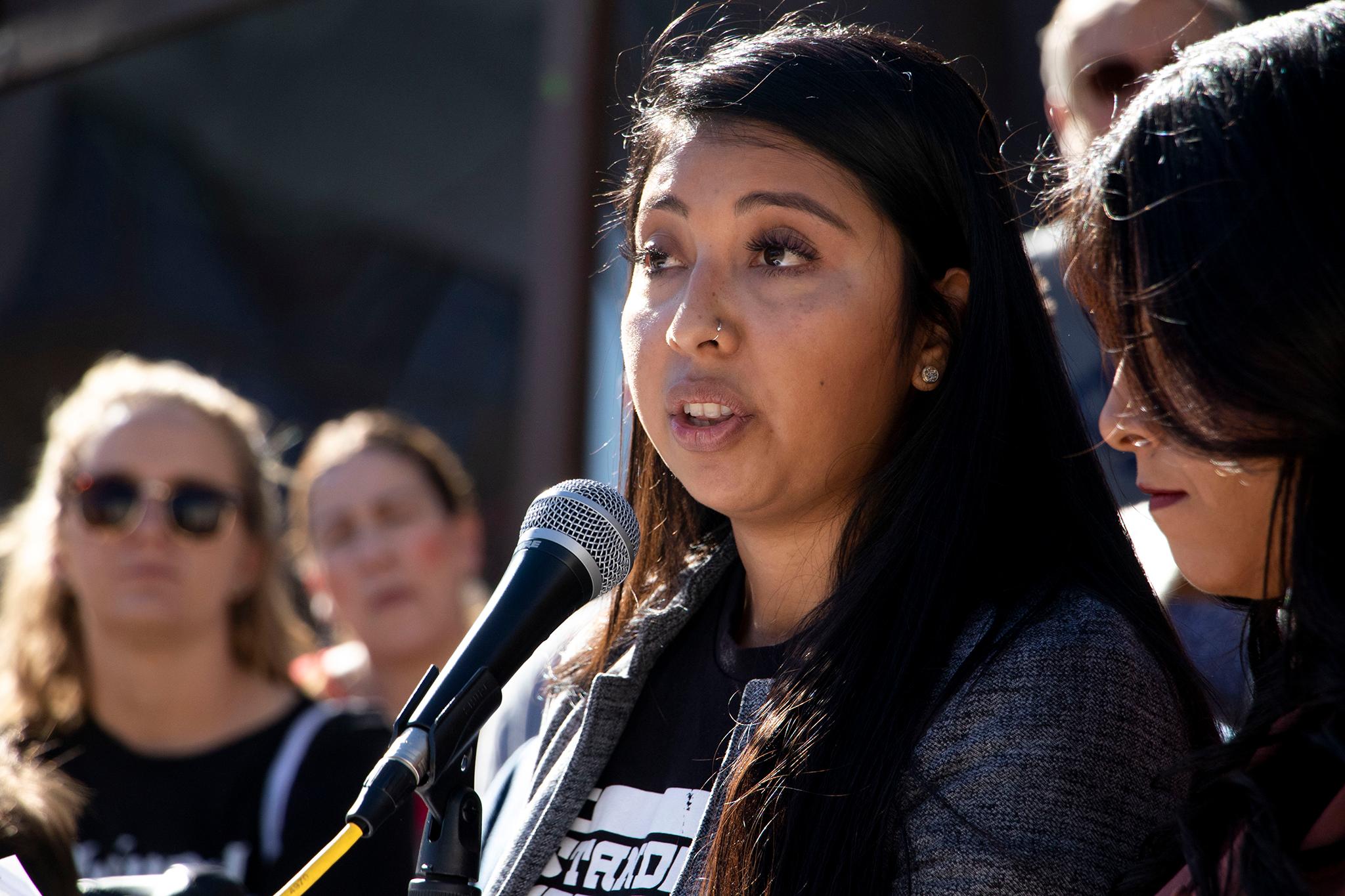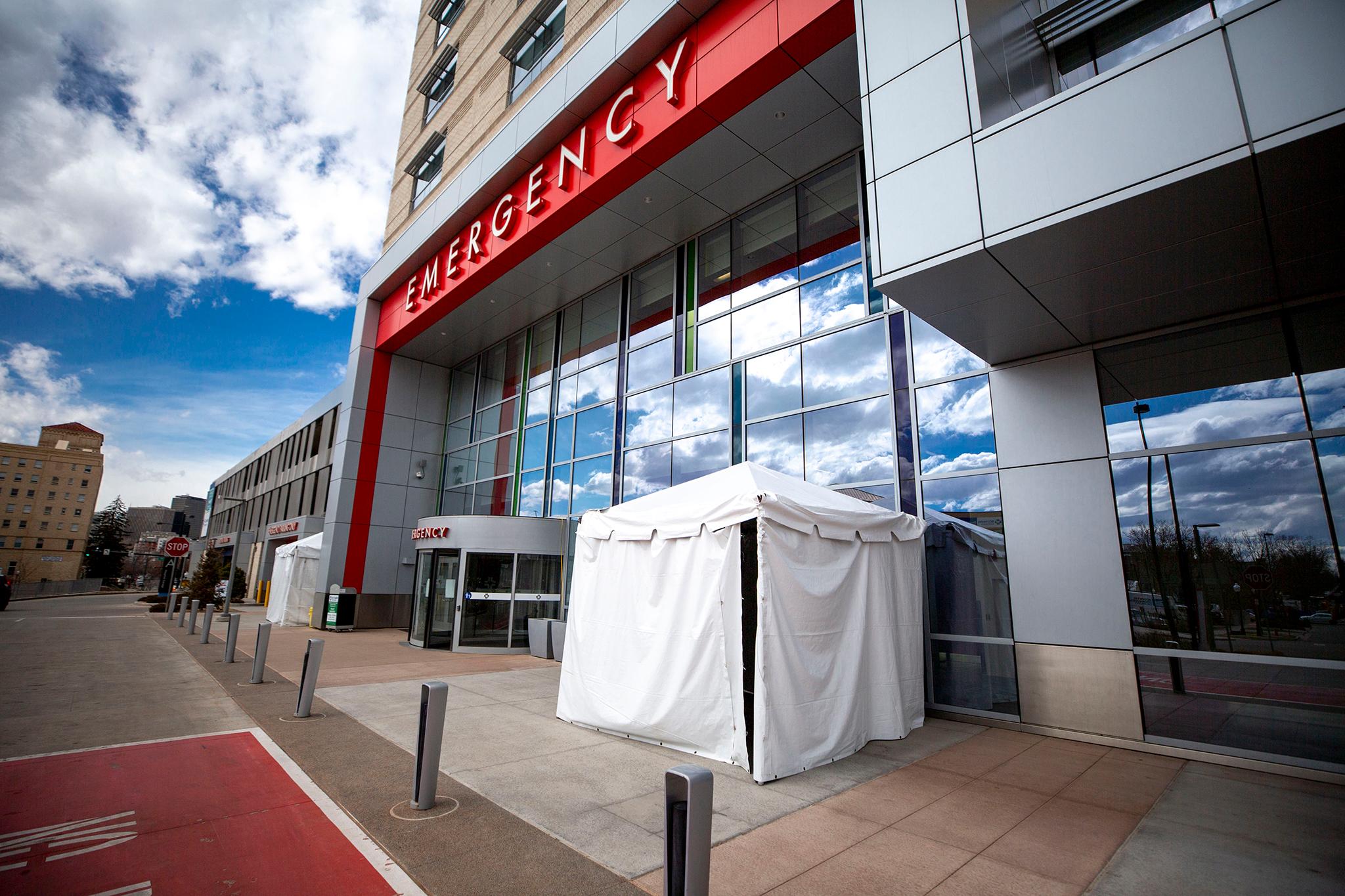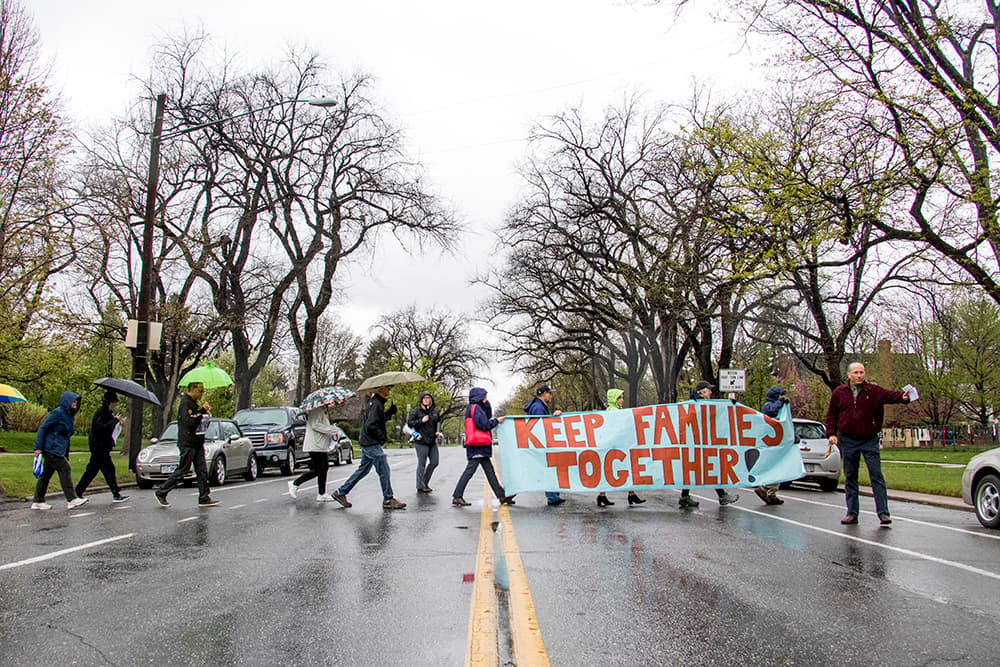After two undocumented Denver residents were pulled over by ICE and arrested this week, questions began to fly about how people without status would fare as the city shuts down. If people need to be tested for COVID-19, if they need access to meal programs offered by DPS, if they still need to work, will federal officials be waiting to snap them up?
Noah Stout is a teacher at DSST College View and a lawyer who's been involved with both people detained by authorities this week. From his view as an immigration attorney and an educator, he's concerned that people already on the margins will face greater struggles if fear keeps them from accessing resources.
"The thing I'm most worried about right now is families, people in Denver, just accessing essentials," he said. "We don't want people scared to feed their families."
One of the arrests occurred in north Denver on Monday, when a woman was on her way to pick up her kids from school. Just a few weeks ago, a lifetime before the novel coronavirus took over the news cycle, the Colorado Immigrant Rights Coalition (CIRC) sent out a press release accusing ICE of preying on people as they approached schools. They said two men in Denver were arrested as they drove to drop off their kids in February.
Stout said people fear they may be arrested if they leave the house to visit a doctor, school or food pantry. Because people without documentation are more likely to hold jobs that were shut down in the last week, that isolation means their suffering will be much more severe than others who are currently out of work.
"They don't know what they'll do to make ends meet or pay their rent," Gladis Ibarra, who works with CIRC, said. "It feels like our community is being left behind."

On Wednesday, ICE announced they were indefinitely changing their enforcement priorities and would focus only on "individuals subject to mandatory detention based on criminal grounds."
But Ibarra said people afraid of interacting with ICE don't take much comfort in the policy announcement.
"None of us buy the fact that they are only looking at folks that have a past offense or a record," she said. Past actions by President Trump's administration have made it clear to her that "everybody without documentation is a priority."
On Friday, Denver Public Schools provided Denverite with a statement that indicated the school district was "glad" to hear ICE temporarily changed its priorities. But DPS is still concerned the agency's presence will stop people from accessing resources at schools and medical facilities.
"While schools are closed, our nearby neighborhoods become extensions of our school communities and we believe any actions or threats that raise anxiety will deter our immigrant families from seeking medical attention and other supports during the COVID-19 outbreak," the statement read. "This makes no one safer."
Ibarra is also involved with the Colorado Rapid Response Network, a hotline service for people to report suspected ICE activity. She said calls to the hotline have jumped in the last month.
"This is a very scary time for a lot of families and especially scary for certain families, those who are uninsured or those who don't have legal documentation," Sarah McAfee, spokesperson for the Center for Health Progress, told Denverite. "What we are seeing is that inequities in our country are more dramatically exposed in times of pandemic."
People are afraid to seek treatment as xenophobia rears its head
Accessing healthcare has long been a struggle for people without documentation. Those difficulties can result in delayed treatment for serious conditions, inadequate care and a burden on taxpayers because people use the emergency room - their only option - more often.
In recent years, McAfee said the Center for Health Progress has tried and failed to pass a measure that would officially make healthcare facilities off limits to immigration enforcement. While she's not sure arrests are actually happening at these places, she said even the slightest possibility is keeping people away.
"We find ourselves in a situation where, if only we had passed this a few years ago, we would have it implemented and Colorado would be a much better place than it is currently," she said.
Because COVID-19 diagnoses must be reported to governments, McAfee worries people who might need to be tested will avoid doing so.
"If you are tested and found to be positive, they are going to report that," she said. "We have no assurance from anyone that that information isn't going to be used against people for deportation purposes."

In its statement, ICE said it will not carry out enforcement operations near "hospitals, doctors' offices, accredited health clinics, and emergent or urgent care facilities, except in the most extraordinary of circumstances" during the COVID-19 crisis.
"Individuals should not avoid seeking medical care because they fear civil immigration enforcement," it read.
Angela Cobian, Denver Board of Education treasurer who also works on equity in education, said the fact that ICE is still making arrests is "incredibly counterproductive" to public health and safety.
"It's intentional and willingly reckless and endangers everyone," she said.
If people are too afraid to leave the house, groceries may not be the only thing they're deprived of. A positive COVID-19 diagnosis could also go unnoticed.
But McAfee worries people of color have already become scapegoats as more cases have been confirmed and lockdowns continue. She pointed to incidents of violence and harassment reported against Asian Americans in other parts of the country as evidence. It's become such a widespread fear that the Asian Pacific Policy and Planning Council launched a website for people to report bias-motivated attacks related to the outbreak.
"Italy has a severe outbreak," she said, "but there's no anti-Italian sentiment. Our xenophobia is concentrated on folks of color."
If undocumented residents become subjected to similar abuse, McAfee said, it will be the fault of governments, not immigrants.
"We know for sure that anti-immigration rhetoric and policy have made the country's public health response to COVID slower and weaker, and that is undermining access to critical care," she said. "We're in a moment of irrational action and fear."
On Thursday, CIRC submitted a petition to Gov. Jared Polis, urging executive action to ensure people's legal statuses could not be shared with federal authorities and to bar ICE activity from the state.
"Especially in a moment when our nation is threatened by COVID-19," the petition reads, "we need to ensure that all residents in Colorado feel safe accessing our health systems and resources without compromising their personal information."













